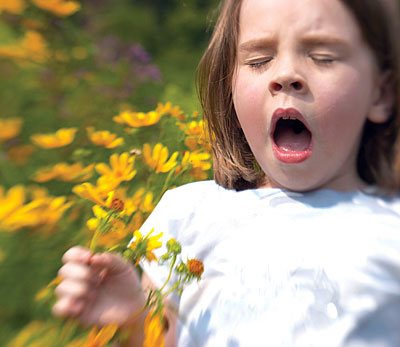 |
When doctors contemplate writing a health column, the first thing that comes to mind is the potentially monotonous topic of the common cold ('ruga khoki') or nonspecific upper respiratory tract infection, as it is known in medical parlance. But let me run a quick quiz to rescue you from boredom. Which of the following has been shown to decrease the duration of the common cold? The choices are : a) azithromycin (an antibiotic), b) vitamin C, c) zinc, d) Echinacea herb e) all of the above, and f) none of the above.
Upper respiratory tract infections are the leading cause of ambulatory visits to the doctor's office. These infections are characterised by a stuffy nose with some discharge (rhinorrhea), sore throat, cough, and a general feeling of being unwell. This illness is caused by viruses which sometimes prepare the ground for bacteria to launch a 'super added' infection. Some doctors say that when the nasal discharge and the phlegm becomes green or yellow, the bacteria have settled in. The most commonly implicated virus is the rhinovirus, followed by the influenza virus, and adenoviruses. In general, unless a 'super added' infection has taken root, bacteria are not the initial culprits.
So, the answer to the above question is not an antibiotic because viruses, unlike bacteria, do not respond to antibiotics. Many people swear by vitamin C, but randomised controlled trials (RCTs, the gold standard in western medicine for judging the efficacy of any drug or device) have shown that vitamin C doesn't cure a cold. Zinc and herbs are also ineffective. So the correct answer is, none of the above.
Washing your hands properly and covering your mouth while coughing will inhibit transmission of the illness to others. Influenza A and B can be effectively prevented through annual vaccination. The US Advisory Committee for Immunization Practices (ACIP) now recommends influenza vaccination for everyone above 6 months of age, including pregnant women. More importantly, this year's influenza vaccine incorporates the HIN1 (swine flu) vaccine as well. H1N1 caused a scare last year and continues to be problematic this year too.
So can the common cold be cured or must you just sneeze and bear it? The drug treatment is basically nothing, except some paracetamol, a nasal decongestant, and cough medicine. Just watch out for the side-effects of drowsiness while you're at the wheel.


